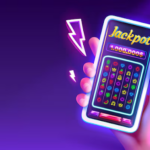-
Table of Contents
Introduction:
In today’s digital age, privacy breaches and leaks have become a common occurrence. One such incident that garnered significant attention was the “Realcacagirl Leak.” This article aims to delve into the details of this leak, its impact on individuals and society, and the lessons we can learn from it. By examining real-life examples, case studies, and statistics, we will gain valuable insights into the importance of privacy and the measures we can take to protect ourselves.
The Realcacagirl Leak: Understanding the Incident
1. What is the Realcacagirl Leak?
The Realcacagirl Leak refers to the unauthorized release of personal information and private conversations of a popular social media influencer known as Realcacagirl. This incident occurred when a hacker gained access to Realcacagirl’s online accounts and subsequently leaked sensitive content.
2. How did the leak occur?
The leak was a result of a targeted hacking attack on Realcacagirl’s online accounts. The hacker exploited vulnerabilities in the influencer’s security measures, such as weak passwords or lack of two-factor authentication. Once the hacker gained access, they obtained personal information, private messages, and other sensitive content.
The Impact of the Realcacagirl Leak
1. Personal and Emotional Consequences
The Realcacagirl Leak had severe personal and emotional consequences for the influencer and those involved. The leaked content exposed private conversations, personal details, and intimate moments, leading to feelings of violation, embarrassment, and distress. Realcacagirl’s reputation and mental well-being were significantly affected, highlighting the importance of safeguarding personal information.
2. Trust and Reputation Damage
The leak also had a profound impact on Realcacagirl’s trust and reputation. The leaked content revealed sensitive information that could be used against her, potentially damaging her personal and professional relationships. Trust is a crucial element in the influencer industry, and breaches like this can have long-lasting effects on an individual’s career and public image.
3. Privacy Concerns and Public Awareness
The Realcacagirl Leak brought privacy concerns to the forefront of public awareness. It served as a wake-up call for individuals to reassess their online security practices and the potential risks associated with sharing personal information online. The incident sparked discussions about the need for stronger privacy regulations and increased awareness of the importance of protecting personal data.
Lessons Learned from the Realcacagirl Leak
1. Strengthening Online Security
The Realcacagirl Leak emphasizes the importance of robust online security measures. Individuals should take proactive steps to protect their online accounts, such as using strong and unique passwords, enabling two-factor authentication, and regularly updating security settings. By implementing these measures, individuals can significantly reduce the risk of unauthorized access to their personal information.
2. Privacy Settings and Data Control
Reviewing and adjusting privacy settings on social media platforms is crucial to maintain control over personal information. Users should familiarize themselves with the privacy options available and carefully consider what information they share publicly. Limiting access to personal data can help mitigate the potential impact of a privacy breach.
3. Education and Awareness
Increasing education and awareness about online privacy and security is essential. Individuals should stay informed about the latest threats, best practices, and privacy regulations. Educational campaigns, workshops, and resources can empower individuals to make informed decisions and take necessary precautions to protect their personal information.
Q&A: Addressing Common Concerns
1. Can the Realcacagirl Leak happen to anyone?
While anyone can become a target of hacking or privacy breaches, individuals who have a significant online presence, such as influencers or public figures, may be at a higher risk. However, by implementing strong security measures and being cautious about sharing personal information, individuals can reduce their vulnerability.
2. How can individuals recover from a privacy breach?
Recovering from a privacy breach can be challenging, but there are steps individuals can take. They should immediately change compromised passwords, report the incident to the relevant platforms, and consider seeking legal advice if necessary. Additionally, seeking support from friends, family, or professionals can help individuals cope with the emotional impact of the breach.
3. What legal actions can be taken against hackers?
Legal actions against hackers vary depending on jurisdiction and the severity of the breach. In many cases, hacking is considered a criminal offense, and individuals can report the incident to law enforcement agencies. It is crucial to consult with legal professionals to understand the available options and pursue appropriate legal action.
4. How can organizations prevent similar leaks?
Organizations can prevent similar leaks by implementing robust security measures, conducting regular security audits, and educating employees about best practices. Additionally, organizations should prioritize data protection and privacy compliance, ensuring they adhere to relevant regulations and industry standards.
5. What are the long-term consequences of a privacy breach?
The long-term consequences of a privacy breach can be significant. Individuals may experience ongoing emotional distress, damage to their reputation, and potential financial losses. Rebuilding trust and recovering from the impact of a breach can take time and effort, highlighting the importance of preventive measures.
Conclusion: Protecting Privacy in the Digital Age
The Realcacagirl Leak serves as a stark reminder of the importance of privacy and the potential consequences of a breach. It highlights the need for individuals to prioritize online security, review privacy settings, and stay informed about best practices. By taking proactive measures and fostering a culture of privacy awareness, we can protect ourselves and mitigate the risks associated with sharing personal information online.




